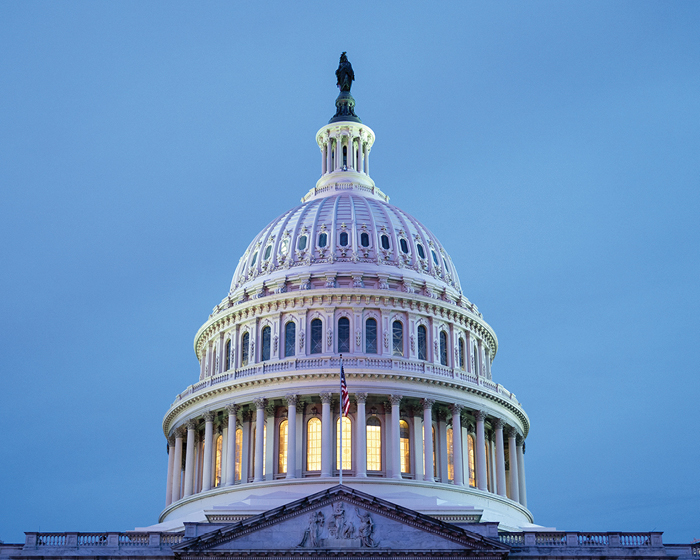Key Takeaways
- Sen. Chuck Grassley made a statement into the Congressional record asking that Treasury respect lawmakers’ intent when it comes to enforcing new clean energy phase-outs.
- The statement may put him at odds with the White House, which is pushing Treasury to be as strict as possible regarding energy credits enacted by the Inflation Reduction Act.
- The back-and-forth highlights some areas of ambiguity in the law.
- The new tax exemption for overtime is also created some confusion.
- The new SALT cap could create new tax planning opportunities.
Not for the first time, President Donald Trump recently singled out on social media a member of his own party—in this case, Chuck Grassley, the 91-year-old Republican senator from Iowa.
Trump blasted the long-serving lawmaker for failing to speed up the process of confirming Trump's judiciary nominations.
But the two prominent Republicans also have a lower-profile dispute over the sunsetting of energy credits, as recently amended by the One Big Beautiful Bill Act. While not as flashy, it could end up determining whether millions of dollars in new energy projects go ahead, or are stopped in their tracks.
Grassley entered a statement into the Congressional Record on July 23, praising the "sensible compromise" that allows some wind and solar projects to use Section 48E and Section 45Y clean energy credits after a new 2027 sunset, if they begin construction within 12 months.
He also notes that the legislation codifies previous U.S. Treasury Department guidance on how to define when construction begins, and urges Treasury officials to implement the law "in accordance with the statute as written and consistent with congressional intent."
Grassley's statement follows a White House July 7 executive order, which directed Treasury to create guidance within 45 days to "enforce the termination" of the 48E and 45Y credits, including the beginning of construction rules. The order specifically calls on Treasury to ensure those rules aren't circumvented, "including by preventing the artificial acceleration or manipulation of eligibility and by restricting the use of broad safe harbors unless a substantial portion of a subject facility has been built."
In theory, Trump and Grassley's statements aren't contradictory—they're both calling on Treasury to enforce the law. But there are always some ambiguities between the words of statutes, and the OBBB's beginning of construction rules are no exception. Trump's order seems to imply that Treasury will impose rules stricter than prior Treasury guidance. And, while Grassley is correct that this guidance was codified into law by the OBBB, that language is in a different section of the law, and it’s unclear whether it would apply in those cases.
These are the crucial decisions which will be made over the next months and years about implementing the new tax law--and Treasury will likely face strong pressure from many sides on how to proceed.
Recent Tax Pieces:
How Much Will the Prohibited Foreign Entity Rules Change Energy Credits? – Marie Sapirie, Tax Notes ($):
Who Gets ‘No Tax on Overtime’? It’s Messy. – Richard Rubin, The Wall Street Journal:
That definition excludes overtime paid to airline employees, railroad workers and other transportation laborers covered by separate overtime laws. It doesn’t include some payments under agreements outside FLSA or workers specifically exempted from FLSA. And it excludes payments required under state laws like California’s, where overtime starts after eight hours daily instead of 40 hours weekly.
Related: One Big Beautiful Bill Overtime Pay and Tips Q&A
Treasury Secretary Says Trump Accounts Could Pave Way to Privatizing Social Security – Alan Rappeport and Andrew Duehren, The New York Times:
Suggestions of trimming benefits or raising the retirement age to make the programs more financially sustainable have been nonstarters with older voters, who reliably show up at the polls. Mr. Bessent’s comments alluded to an idea popular among some conservatives to push more Americans to rely on financial investments, rather than government payments, to fund their retirement.
SALT Cap Complexity Could Rewrite Tax Planning Strategies – Stephen K. Cooper, Law360 Tax Authority ($):
Casinos’ Push for Trump Tax Law Fix Gains Traction in Congress – Daniel Bunn, Bloomberg Tax:
Fortunately for the gamblers and the gaming industry, time is on their side. The provision takes effect next year, meaning gamblers seeking to deduct their losses won’t face the tax hike until they file their 2026 taxes in early 2027, giving Congress time to navigate these challenges.
Make a habit of sustained success.



